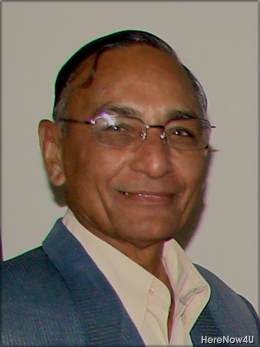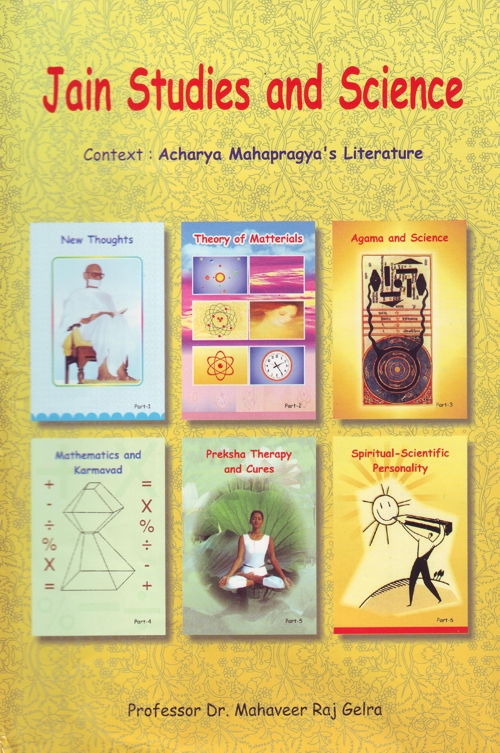Philosophy and Science - both seek the truth but with a fundamental difference. Philosophy follows a certain definite base whereas science always starts from zero ground. In their respective quest for truth they cross each others path very often. Many a times, philosophical musings pave the way for scientific research, while at times; philosophers are compelled to take notice of scientific discoveries. Yet, both have one similarity - they have a long way to go before the ultimate truth and purpose of our existence is revealed. Whether or not both will reach the same destination - time only will tell!
Today's youth has more faith in science than in religion or philosophy. Though philosophy is not attached to any particular person and is associated only with the truth, yet its authenticity sometimes comes under severe scrutiny when it gets associated with any great person.
Once Buddha told his disciples. "Tradition is not the yardstick of truth, neither am I. Truth will be established - not because I am propounding it but will be accepted b> your heart only when your mind acknowledges it sensibly." Lord Mahavira also emphasised the same fact - "Search for the truth - thyself."
Like philosophy, science too has but one aim - to rid humanity of its sorrows and sufferings. Till date, the basis of all progress of humanity is through materialistic sources even though developed countries had caused destruction in the guise of the peace.
Acharya Mahapragya is an eminent coordinator of philosophy and science. Using science as the touchstone, he lived the essence of religion in his life. According to him, science is not our foe but is a friend. With more and more scientific revelations, the gap between science and philosophy has been bridged. He states that the truth can be described only by realistic approach i.e. Anekant (Non-absolutism). Jain philosophy is completely scientific in its own self and needs no scientific apparatus and research to prove its authenticity. However, some truths which had got buried in the passage of time need to be re-established through science. To that extent the scientific research has helped the philosophy greatly. This is indeed a great work done by science. The contribution of Acharya Mahapragya is that he has presented the philosophy in the language of science - the language of modern era. What is scientifically approved can be universally accepted.
Science progresses from 'macro' to 'micro' whereas spiritualism moves from tangible to abstract. In totality, both are heading towards a single reality - the infinitely latent world of'massless'. Transcendental knowledge beyond perception - an important subject of philosophy which had ceased to exist for a long time, has been revitalised by the science. Aura, conversion of body chemicals, change in secretions of hormones through meditation and effect of finer karmic waves etc. have all become the part of scientific realm. Various scientific apparatuses have been our associates in this philosophical travel. The use of scientific methods has eliminated number of misconceptions, myths and problems associated with various religious and philosophical beliefs.
The practice of the comparative study between religion and science has gained momentum during these years. Question arises that is it essential to test the religious axioms on scientific litmus? The answer lies in the fact that young and present generation accepts the authenticity of religion only if it is scientifically proved. Science is disco\ering nev. facts through the researches in subjects like religion, philosophy health, mathematics, geography astronomy etc. Thus it will be naive on our part to overlook the usefulness of comparative studies! Those who were initially opposing the idea of confluence of science with religion too have started accepting the scientific views. Today science has promoted the relevance of religion and philosophy by experimentally proving the beliefs embedded in them.
There were many subjects in Jain philosophy which hitherto were difficult to express in common language with in-depth clarity, but the same has become easy with modern discoveries of science. There was a time when youth could be convinced by mere faith, but today the context has changed and with them the depth of faith has deepened.
The personality of Acharya Mahapragya is a brilliant combination of scientific temperament and spiritual character. Though he never studied science in any school or laboratory, yet had been able to give clear scientific explanations to number of profound subjects of Jain philosophy. Books written by him are, therefore, readily accepted and respected by number of scholars. He is a scholar and commentator of Indian and Western philosophies along with being a great interpreter of science and spiritualism. According to him -
"A new personality is born when external universe combines with the internal spirit i.e. when physical materialism amalgamates with the spiritual metaphysics. Today India is not only borrowing foreign exchange from the west but also the concepts and thoughts. I want to save India from this humiliating experience. I am benefited by the knowledge of the ancient scriptures, but I don't believe in carrying its burden."
President Dr. Abdul Kalam says, "Acharya Mahapragya has a scientific attitude as he is not adamant on any particular concept." Swami Vivekanand -as felt the dire need for the coordination between spiritual knowledge and l; ience. Vinobha Bhave expressed it differently - "The train of science needs an engine fuelled by spirituality." Acharya Mahapragya has moved a step further. He has proved the usefulness of science in the fields of education, meditation and spiritual knowledge. He has applied the various scientific results in the i nterpretations of Preksha Dhyana (meditation) and has explained in his sermons and literature how meditation cures diseases, changes habits and reveals the secrets of inner being. He believes that high accomplishments would only be achieved by entering into the finer world. The miracles and usefulness of atom ar^ known to the entire world. But the power of consciousness is infinitely stronger. This is true because when T is known, the rest all automatically follows. Therefore, the word 'Pragya' when gets associated with Acharya Mahapragya, it assumes greater meaning and significance.
In the present book, 'JAIN STUDIES AND SCIENCE: CONTEXT -ACHARYA MAHAPRAGYA'S LITERATURE', Dr. Mahavir Raj Gelra has exhaustively described those subjects of Jain philosophy from scientific view point which are discussed in various Mahapragya literature. Though philosophy and science both are intricate subjects, it's the skill and specialisation of Dr. Gelra to have described these in simple and comprehensible language. Due care has been taken in all the sections of the book as not to touch those subjects which are not based upon scientific principles. This has become possible because of Dr. Gelra's unique combination of minute and profound knowledge of Jain philosophy and science along with his humbleness and scholar's attitude. He is a writer, philosopher, thinker and a spokesperson of three important facets of life - religion, philosophy and science.
This is indeed the result of the blessings of Dr. Gelra's religious Guru Acharya Mahapragya which has enabled him to work on latter's literature. His Ksearch papers published in various national and international seminars have earned him great accolades. Being a popular figure in Jain society, he has been in\ ited as a speaker on number of occasions by the Jain saints.
Dr. Gelra completed his M.Sc. in chemistry followed by Ph.D. from Jodhpur University. He retired as Director, College Education, Rajasthan, and later became the founder Vice-Chancel lor of Jain Vishva Bharati Institute (Deemed University), Ladnun. Having reached the pinnacle of success in the field of education, he's now actively associated with Acharya Mahapragya's literature.
SADHVI RAJIMATI
 Dr. Mahavir Raj Gelra
Dr. Mahavir Raj Gelra

